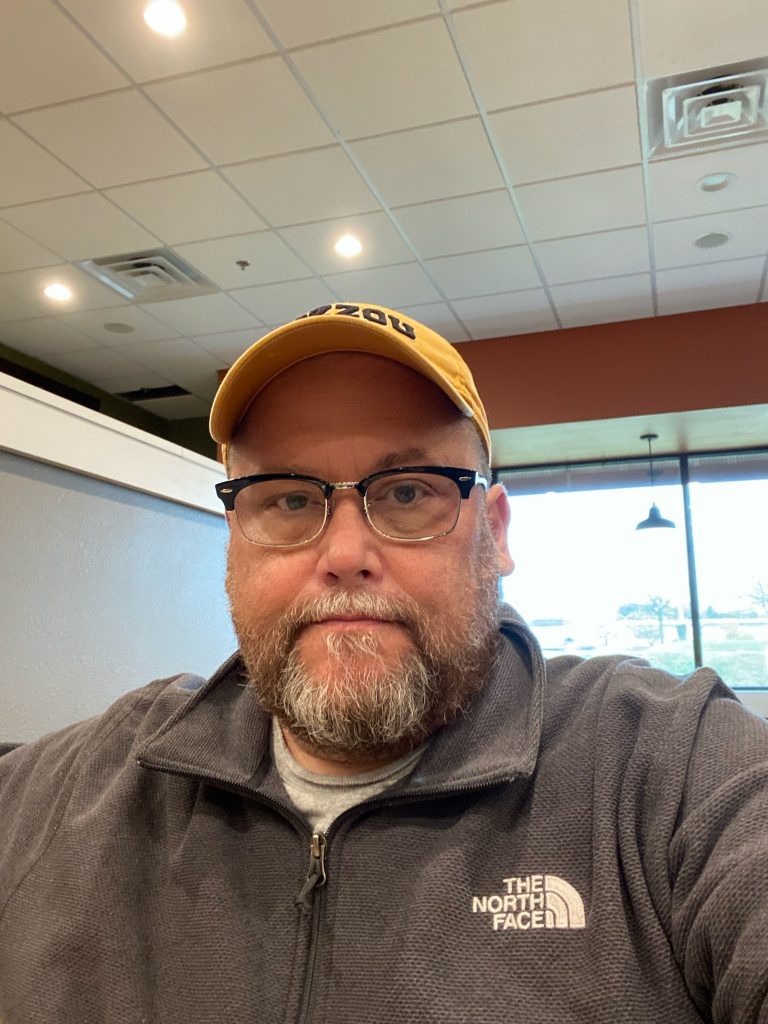Adam Yorty: Mission Impossible Accomplished!

This month CORE is losing a valued member of our recovery team, Adam Yorty. For nearly five years Adam has been an integral part of our organization while teaching CSR classes and serving as a house manager. Adam also volunteers time to our Second Mile program. Unfortunately, Adam has been called to return home to Florida because of family obligations. He has a parent suffering from an auto-immune condition who has taken a turn for the worse. We’re sad that he has to leave but wish him and his family well and pray for a return to good health!
Readers may recognize “Chef Yorty” from his recent appearance on the cover of Discover Home & Style’s summer issue. In only four short years Adam — unintimidated by celebrity-chef restaurants in and around Table Rock – has made the Pour House in Hollister more popular than them all. He’s no stranger to celebrity status either. One of his eateries was once inducted into the prestigious Fine Dining Hall of Fame while he was at the helm. He’s rubbed plenty of shoulders with greats in the fashion industry too, having worked with Ralph Lauren, Karl Lagerfeld, and others.
For all of his successes, Adam had a weakness that dogged him for 35 years. Every achievement in life and career was ultimately countered by John Barleycorn. For decades he lived in a cycle of saying goodbye to alcohol, clawing his way back up the ladder of success, and then crashing and burning in the most spectacular binges imaginable. There were lots of rehabs and detoxes along the way. Over and over, all of his achievements were wiped out by monumental drinking excesses. Eventually he lost his wife and child, and parents, too.
Five years ago, however, something happened. He was talking on the telephone with his daughter, Emeline, who was coming of age and old enough to understand what’s what. She realized he’d been drinking again, and she began to cry. The incident left a deep and lasting impression on Adam. Upon weighing his options, Adam decided that CORE “was the best bet.” Although he had failed many times before, he didn’t want to drink again. He was a man on a mission again, but this time without any ulterior motives. As he told us:
I did not set out this time to get a wife back, to get a daughter back, or to get anything back. It was not my plan. My plan was to do what is asked from the Big Book and see what would happen. Although still a skeptic I said, I’m going to do this. I was being humble.
Adam began thoroughly working the Steps. His 5th Step was done with our own Ray Francis and lasted eight hours. The obsession lifted completely, at which point things indeed started to happen for Adam. As examples, he began teaching CSR classes and running a CORE house. A fortuitous turn of events also landed him in charge of the newly opened Pour House, which Adam made short work of turning into one of the most prominent restaurants in the tri-lakes area.
Adam gives CORE due credit for his recovery, saying:
CORE has been very important. It gave me all the tools I needed and gave me hope. CORE does not give up on people. There’s care, compassion, and love here. The Steps and my relationship with God are so important, but I don’t think I ever would have truly accepted them without CORE’s guidance. It was the bridge that helped me understand.
Most importantly, Adam got his daughter back in his life, along with his parents and brother and his family. He’s friends again with his ex, too. Having the people he cares about back in his life is what’s most important to Adam. In fact, as our conversation flits from topic to topic, Adam brightens considerably while talking about Emeline, who now is a 22 year-old opera phenom wowing audiences as far away as New York. Adam sees her every chance he gets, and they stay in frequent contact while she’s away at school. We were curious exactly where in her bloodlines such talent originated. We’ve seen some of her performances on YouTube and she’s amazing. Adam just shrugged his shoulders and smiled. There’s no singers in his or her mother’s family, but he’s plainly proud of her and excited about her future.
We will miss Adam and wish him the very best in his endeavors. He will carry the message of recovery wherever he goes. We’ve had the privilege of having him with us for almost five years. Now it is time for him to trudge the road of happy destiny with others. May God bless him and keep him safe.


